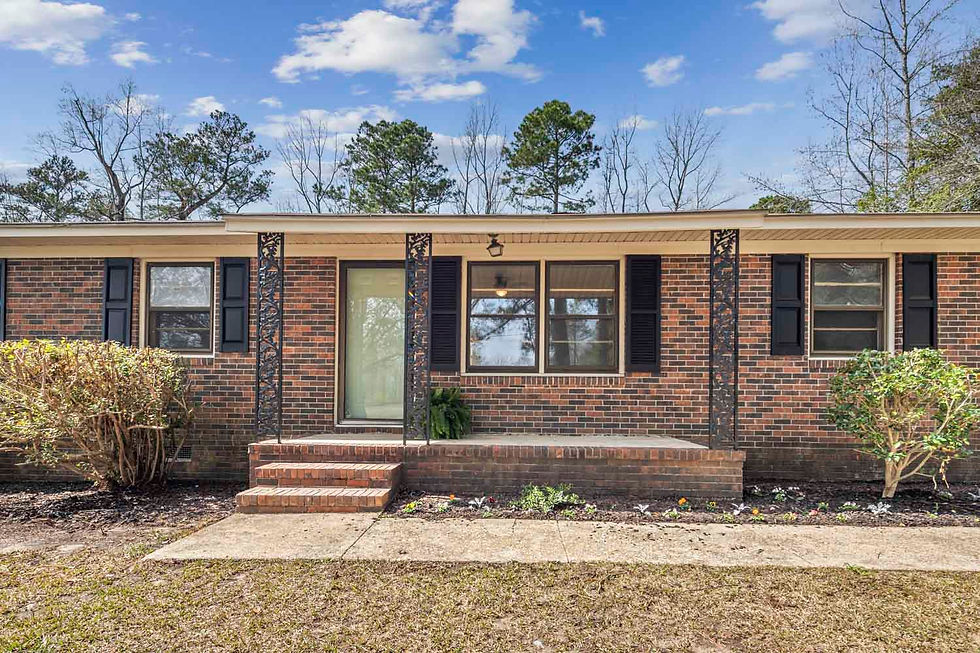The Hidden Costs of Buying a Home in North Carolina
- Cassie Callahan
- Aug 29, 2025
- 3 min read
Buying a home is one of the most exciting steps you’ll ever take—but if you’re a first-time buyer, you may be surprised by the extra costs that come with the process. Beyond your down payment, there are several upfront and ongoing expenses to budget for when buying in North Carolina. Let’s break down the most common ones so you don’t get blindsided.

1. Due Diligence Fee
What it is: A non-refundable fee paid directly to the seller when you go under contract. It gives you the exclusive right to buy the property while you complete inspections and secure financing.
Typical range: $500 to $2,000+ (varies by market and seller expectations).
Why it matters: This money is credited back to you at closing—but if you back out without cause, you don’t get it back.
2. Earnest Money Deposit
What it is: A deposit showing you’re serious about the purchase, held in escrow until closing.
Typical range: 1–2% of the purchase price.
Why it matters: If you close, the money goes toward your purchase. If you back out without a valid reason, you risk losing it.
3. Home Inspections
What it is: Professional inspections to evaluate the condition of the home (general inspection, pest, HVAC, septic, etc.).
Typical cost: $400–$800, depending on home size and services needed.
Why it matters: Inspections protect you from costly surprises—but they’re paid out-of-pocket, whether or not you end up closing.
4. HOA Dues (if applicable)
What it is: Fees paid to your homeowners’ association for community upkeep, amenities, or neighborhood services.
Typical cost: $200–$600 per year in smaller neighborhoods; $100+ per month in larger communities with amenities.
Why it matters: HOA dues are ongoing expenses, so make sure they fit into your monthly budget.
5. Closing Costs
What it is: Fees and expenses tied to finalizing your mortgage and transferring ownership. This includes lender fees, attorney fees, title insurance, and taxes.
Typical cost: Around 2–3% of the purchase price.
Why it matters: Closing costs are due upfront at settlement, so plan ahead—sometimes sellers can help cover them, but not always.
Why This Matters for NC Buyers
Between due diligence, inspections, and closing costs, buyers in North Carolina often need several thousand dollars saved beyond the down payment. Knowing this ahead of time can make the process much smoother—and it helps you avoid scrambling when these expenses come up.
Frequently Asked Questions
1. Is the due diligence fee refundable? No. If you walk away without a valid reason, you forfeit it. But if you close, it’s applied toward your purchase.
2. What’s the difference between due diligence and earnest money? Due diligence goes directly to the seller and is non-refundable. Earnest money is held in escrow and is refundable if you back out for valid reasons.
3. Can I roll closing costs into my mortgage? Sometimes—lenders may allow it depending on your loan type. Alternatively, you can negotiate for seller credits.
4. Do all homes in NC have HOA fees? No, only those in HOA-governed neighborhoods. Many homes outside subdivisions do not have them.
5. How much cash should I realistically save before buying? Beyond your down payment, plan for at least $5,000–$8,000 to comfortably cover fees, inspections, and closing costs.

👉 Ready to buy with confidence and no surprises? I’d love to guide you through the process. Call or text me at 910-916-9315, email cassie@birchandbeamrealty.com, or connect with me on Instagram @closewithcassie_nc.
📍 Serving Cumberland, Hoke, Harnett, and Sampson counties—your trusted guide for smart real estate decisions in North Carolina.



Comments